 Cardiovascular disease (which includes coronary heart disease, hypertensive heart disease, and stroke) is our number-one global killer. Approximately 84 million Americans suffer from cardiovascular disease with approximately 610,000 deaths annually from heart disease alone.
Cardiovascular disease (which includes coronary heart disease, hypertensive heart disease, and stroke) is our number-one global killer. Approximately 84 million Americans suffer from cardiovascular disease with approximately 610,000 deaths annually from heart disease alone.
Table of Contents[Hide][Show]
Every day, about 2,200 Americans die from cardiovascular disease (one person every 40 seconds!), and by the year 2030, over 23.6 million people are expected to die annually from one of these conditions. Those are some scary numbers—especially considering heart disease is rooted in many diet and lifestyle factors we have control over.
Scientific Studies of the Paleo Diet for Cardiovascular Disease
The good news is that switching to a Paleo diet can dramatically reduce our risk of cardiovascular disease. And, this is more than just speculation from Paleo advocates: the scientific literature backs it up! A growing number of clinical trials have demonstrated that a Paleo-style diet can reduce virtually every risk factor for cardiovascular disease, even in high-risk populations.
Multiple studies have shown that following a Paleo diet reduces systolic blood pressure, diastolic blood pressure, total cholesterol, LDL cholesterol, triglycerides, apolipoprotein B (a component of LDL and VLDL), apolipoprotein A1 (a component of HDL), plasminogen activator inhibitor-1 (PAI-1, related to intravascular clotting and linked to increased risk of diabetes and cardiovascular disease), BMI, waist circumference, and hip-to-waist ratio, as well as boosting HDL “good” cholesterol and improving arterial distensibility (a measure of artery wall elasticity; lower distensibility is a risk factor for cardiovascular disease). In addition, Paleo reduces other risk factors by increasing weight loss, regulating blood sugars, restoring insulin sensitivity (see The Paleo Diet for Diabetes) and lowering C-reactive protein and other markers of inflammation.
In fact, studies show that the Paleo diet beats out the American Heart Association dietary guidelines in terms of reductions in total cholesterol, LDL, and triglycerides and increases in HDL. Paleo reduces cardiovascular disease risk by 22 percent, comparable to the Mediterranean diet.
Check out some of the specific scientific studies that show benefits from following a Paleo diet for cardiovascular disease sufferers and at-risk populations:
- A pilot study of 32 people (all who met at least two criteria for metabolic syndrome) found that compared to a diet based on Dutch Health Council guidelines, eating Paleo resulted in lower systolic blood pressure (-9.1 mmHg), diastolic blood pressure (-5.2 mmHg), total cholesterol (-0.52 mmol/L), and triglycerides (-0.89 mmol/L), as well as higher HDL (+0.15 mmol/L).
- In a metabolically controlled study of nine healthy volunteers, 10 days of eating Paleo (lean meat, fruits, vegetables, and nuts) led to significant improvements in arterial distensibility, plasma insulin vs. time AUC during the oral glucose tolerance test, total cholesterol, LDL, and triglycerides. Although the trial was short-term, the researchers noted that the diet caused nearly consistent improvements in the status of circulatory, carbohydrate, and lipid metabolism and physiology.
- In a study of 13 patients with type 2 diabetes, eating a Paleo diet (lean meat, fish, fruit, vegetables, root vegetables, eggs, and nuts) for three months resulted in a larger drop in HbA1c (-0.4% units), triglycerides (0.4 mmol/L), diastolic blood pressure (-4 mmHg), weight (-3 kg), BMI (-1 point), and waist circumference (-4 cm) compared to a standard diabetes diet, all of which help reduce cardiovascular risk.
- A study of 20 adults with high cholesterol found that compared to an American Heart Association Diet, eating Paleo for four months significantly reduced average total cholesterol, LDL, and triglycerides, while also boosting HDL. The improvements were independent of changes in body weight.
- A systematic review and meta-analysis of existing Paleo trials found that across the board, Paleo results in greater short-term improvements than standard control diets for waist circumference, triglycerides, systolic blood pressure, diastolic blood pressure, HDL cholesterol, and fasting blood sugar.
Those findings are pretty amazing! Together, they represent a strong body of evidence proving that people with cardiovascular disease can benefit from adopting a Paleo diet (read more at Paleo Diet Clinical Trials and Studies). And logically, they make sense. The Paleo diet focuses on many dietary factors known to reduce cardiovascular disease risk, like high vegetable consumption, high fiber intake, high omega-3 fatty acid intake, and balanced low-glycemic meals. Plus, the Paleo lifestyle includes a focus on activity, sleep and stress management, all independent risk factors for cardiovascular disease.
Next-Level Paleo for Cardiovascular Disease
And it gets even better: on top of all the great heart-protective benefits that come from a standard Paleo diet and lifestyle, we can fine-tune our template to offer the even better protection against cardiovascular disease! These modifications are particularly relevant for people who have a family history of heart disease or stroke (which can indicate a genetic component that raises disease risk, such as carrying the ApoE4 phenotype, see Genes to Know About: ApoE and Saturated Fat: Healthful, Harmful, or Somewhere In Between?), or who have already been diagnosed with cardiovascular disease.
Nutrivore Weekly Serving Matrix
An easy-to-use and flexible weekly checklist
to help you maximize nutrient-density.
The Weekly Serving Matrix is very helpful! I’ve been eating along these lines but this really helps me know where to focus vs. which foods serve a more secondary role. It’s super helpful and has taken a lot of worry out of my meal planning. Thanks!
Jan
 Eat plenty of omega-3 rich seafood. Across numerous studies, omega-3 fats are consistently associated with a reduced risk of cardiovascular disease (as well as reduced mortality from sudden cardiac death). They promote cardiovascular health in a variety of ways, including by lowering triglycerides, reducing inflammation, and providing important micronutrients to support vascular function. See Why Grains Are Bad–Part 2, Omega 3 vs. 6 Fats and The Importance of Fish in Our Diets.
Eat plenty of omega-3 rich seafood. Across numerous studies, omega-3 fats are consistently associated with a reduced risk of cardiovascular disease (as well as reduced mortality from sudden cardiac death). They promote cardiovascular health in a variety of ways, including by lowering triglycerides, reducing inflammation, and providing important micronutrients to support vascular function. See Why Grains Are Bad–Part 2, Omega 3 vs. 6 Fats and The Importance of Fish in Our Diets.
 If you smoke, quit! Smoking is a powerful risk factor for cardiovascular disease. If you’re a smoker, embarking on even the most nutritious Paleo diet won’t be enough to offset the damage and disease risk created by smoking.
If you smoke, quit! Smoking is a powerful risk factor for cardiovascular disease. If you’re a smoker, embarking on even the most nutritious Paleo diet won’t be enough to offset the damage and disease risk created by smoking.
 Get plenty of sleep. Sleep deprivation is a major contributor to cardiovascular disease risk, and is associated with higher blood pressure, weight gain, obesity, and greater rates of heart disease and stroke. In fact, routinely sleeping less than 6 hours per night (compared to getting between 6 and 8 hours per night) doubles the risk of stroke, heart attack, and coronary heart disease, while also raising risk of congestive heart failure. See Sleep and Disease Risk: Scarier than Zombies! and Sleep Requirements and Debt: How do you know how much sleep you need?
Get plenty of sleep. Sleep deprivation is a major contributor to cardiovascular disease risk, and is associated with higher blood pressure, weight gain, obesity, and greater rates of heart disease and stroke. In fact, routinely sleeping less than 6 hours per night (compared to getting between 6 and 8 hours per night) doubles the risk of stroke, heart attack, and coronary heart disease, while also raising risk of congestive heart failure. See Sleep and Disease Risk: Scarier than Zombies! and Sleep Requirements and Debt: How do you know how much sleep you need?
 Manage stress. Stress is a bigger predictor of cardiovascular disease than any other diet or lifestyle factor. Every effort to reduce avoidable stressors in our lives, or to manage existing chronic stress (through meditation, taking walks, getting time in nature, or other activities that help us stay centered), translates to increased protection against cardiovascular disease. See How Stress Undermines Health
Manage stress. Stress is a bigger predictor of cardiovascular disease than any other diet or lifestyle factor. Every effort to reduce avoidable stressors in our lives, or to manage existing chronic stress (through meditation, taking walks, getting time in nature, or other activities that help us stay centered), translates to increased protection against cardiovascular disease. See How Stress Undermines Health
 Focus on fiber. The fiber in nutrient-dense vegetables, fruits, nuts, and seeds can go a long way to protect the cardiovascular system. Fiber consumption is associated with lower risk of stroke and heart disease, and some types of fiber can reduce LDL cholesterol, lower blood pressure, and promote healthy body weight. (In addition, the plant foods that deliver fiber to our bodies contain powerful antioxidants and helpful micronutrients that support cardiovascular health in additional ways.) See 5 Reasons to Eat More Fiber and The Fiber Manifesto, Part 1 of 5: What Is Fiber and Why Is it Good?
Focus on fiber. The fiber in nutrient-dense vegetables, fruits, nuts, and seeds can go a long way to protect the cardiovascular system. Fiber consumption is associated with lower risk of stroke and heart disease, and some types of fiber can reduce LDL cholesterol, lower blood pressure, and promote healthy body weight. (In addition, the plant foods that deliver fiber to our bodies contain powerful antioxidants and helpful micronutrients that support cardiovascular health in additional ways.) See 5 Reasons to Eat More Fiber and The Fiber Manifesto, Part 1 of 5: What Is Fiber and Why Is it Good?
 Eat saturated fat in reasonable, not excessive, quantities. Although the idea that high-saturated fat animal foods cause heart disease has been discredited, eating excessive quantities of saturated fat (that is, more than whole foods can naturally provide—such as by going hog wild on butter, ghee, and coconut oil) is a question mark in terms of long-term effects on human health. Certain genetic factors, such as being an ApoE4 carrier, may make some people more sensitive to the LDL-raising properties of some forms of saturated fat. To be safe, we should focus on saturated fats in their whole-food form (such as organ meats and eggs), while also getting a variety of monounsaturated fats (avocado, olive, macadamia nut) and omega-3s (as we talked about earlier) from our diet. See Saturated Fat: Healthful, Harmful, or Somewhere In Between?
Eat saturated fat in reasonable, not excessive, quantities. Although the idea that high-saturated fat animal foods cause heart disease has been discredited, eating excessive quantities of saturated fat (that is, more than whole foods can naturally provide—such as by going hog wild on butter, ghee, and coconut oil) is a question mark in terms of long-term effects on human health. Certain genetic factors, such as being an ApoE4 carrier, may make some people more sensitive to the LDL-raising properties of some forms of saturated fat. To be safe, we should focus on saturated fats in their whole-food form (such as organ meats and eggs), while also getting a variety of monounsaturated fats (avocado, olive, macadamia nut) and omega-3s (as we talked about earlier) from our diet. See Saturated Fat: Healthful, Harmful, or Somewhere In Between?
 Engage in gentle movement throughout the day. Although chronic over-training can actually harm the cardiovascular system by raising cortisol and inflammatory markers, frequent gentle movement helps improve insulin sensitivity and circulation. See The Benefits of Gentle Movement and Why is Exercise so Important?
Engage in gentle movement throughout the day. Although chronic over-training can actually harm the cardiovascular system by raising cortisol and inflammatory markers, frequent gentle movement helps improve insulin sensitivity and circulation. See The Benefits of Gentle Movement and Why is Exercise so Important?
 Stay vitamin D replete. In a number of studies, vitamin D deficiency has been strongly associated with an increased risk of heart disease, stroke, and high blood pressure. When getting daily sun exposure isn’t an option, eating vitamin-D-rich foods like fatty fish and egg yolks, as well as supplementing when needed, can help safeguard against the cardiovascular-harming effects of deficiency.
Stay vitamin D replete. In a number of studies, vitamin D deficiency has been strongly associated with an increased risk of heart disease, stroke, and high blood pressure. When getting daily sun exposure isn’t an option, eating vitamin-D-rich foods like fatty fish and egg yolks, as well as supplementing when needed, can help safeguard against the cardiovascular-harming effects of deficiency.
By emphasizing these components of a Paleo diet and lifestyle, we can add dramatic protection for our cardiovascular system and help thwart the world’s number one killer!
Citations
Boers I, et al. “Favourable effects of consuming a Palaeolithic-type diet on characteristics of the metabolic syndrome: a randomized controlled pilot-study.” Lipids Health Dis. 2014 Oct 11;13:160.
Danik JS & Manson JE. “Vitamin D and Cardiovascular Disease.” Curr Treat Options Cardiovasc Med. 2012 Aug; 14(4): 414–424.
Delgado-Lista J, et al. “Long chain omega-3 fatty acids and cardiovascular disease: a systematic review.” The British journal of nutrition. 2012 Jun;107 Suppl 2: S201–13.
Frassetto LA, et al. “Metabolic and physiologic improvements from consuming a Paleolithic, hunter-gatherer type diet.” Eur J Clin Nutr. 2009 Aug;63(8):947-55.
“Heart Disease, Stroke and Research Statistics At-a-Glance.” American Heart Association. 2016.
Jönsson T, et al. “Beneficial effects of a Paleolithic diet on cardiovascular risk factors in type 2 diabetes: a randomized cross-over pilot study.” Cardiovasc Diabetol. 2009 Jul 16;8:35.
Manheimer EW, et al. “Paleolithic nutrition for metabolic syndrome: systematic review and meta-analysis.” Am J Clin Nutr. 2015 Oct;102(4):922-32.
Mozaffarian D, et al. “Heart Disease and Stroke Statistics-2016 Update: A Report From the American Heart Association.” Circulation. 2016 Jan 26;133(4):e38-360.
Pastore RL, et al. “Paleolithic nutrition improves plasma lipid concentrations of hypercholesterolemic adults to a greater extent than traditional heart-healthy dietary recommendations.” Nutr Res. 2015 Jun;35(6):474-9.
St-Onge MP, et al. “Fiber and Saturated Fat Are Associated with Sleep Arousals and Slow Wave Sleep.” J Clin Sleep Med. 2015 Jun 22.
Steptoe A & Kivimäki M. “Stress and cardiovascular disease.” Nat Rev Cardiol. 2012 Apr 3;9(6):360-70.
Wolk R, et al. “Sleep and cardiovascular disease.” Curr Probl Cardiol. 2005 Dec;30(12):625-62.

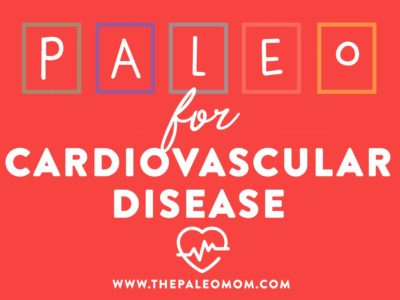
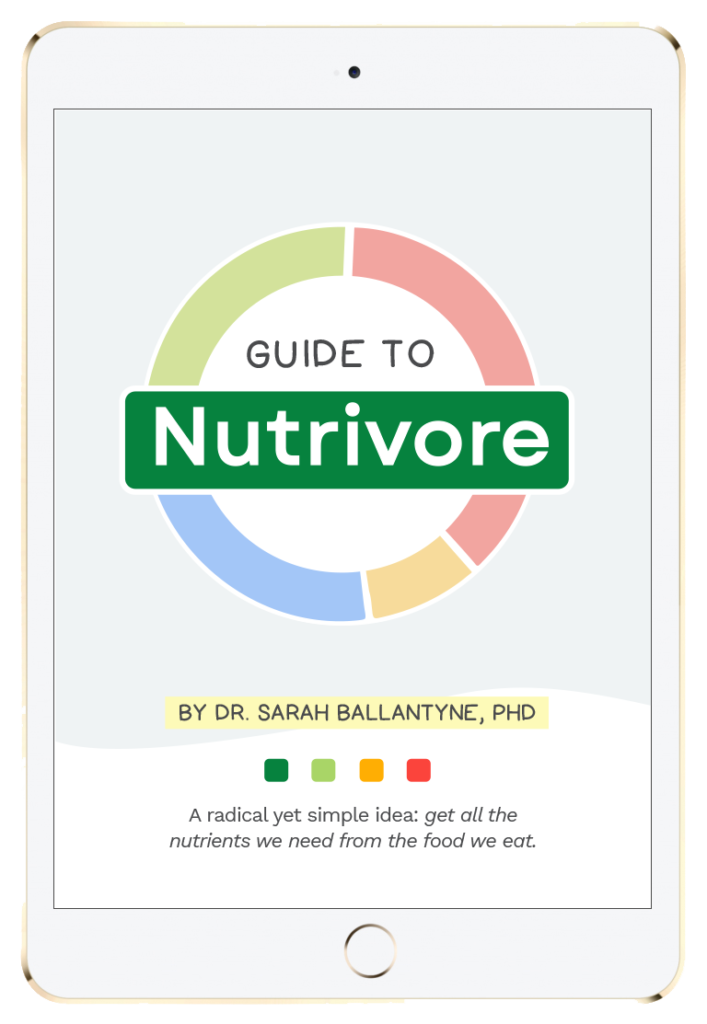
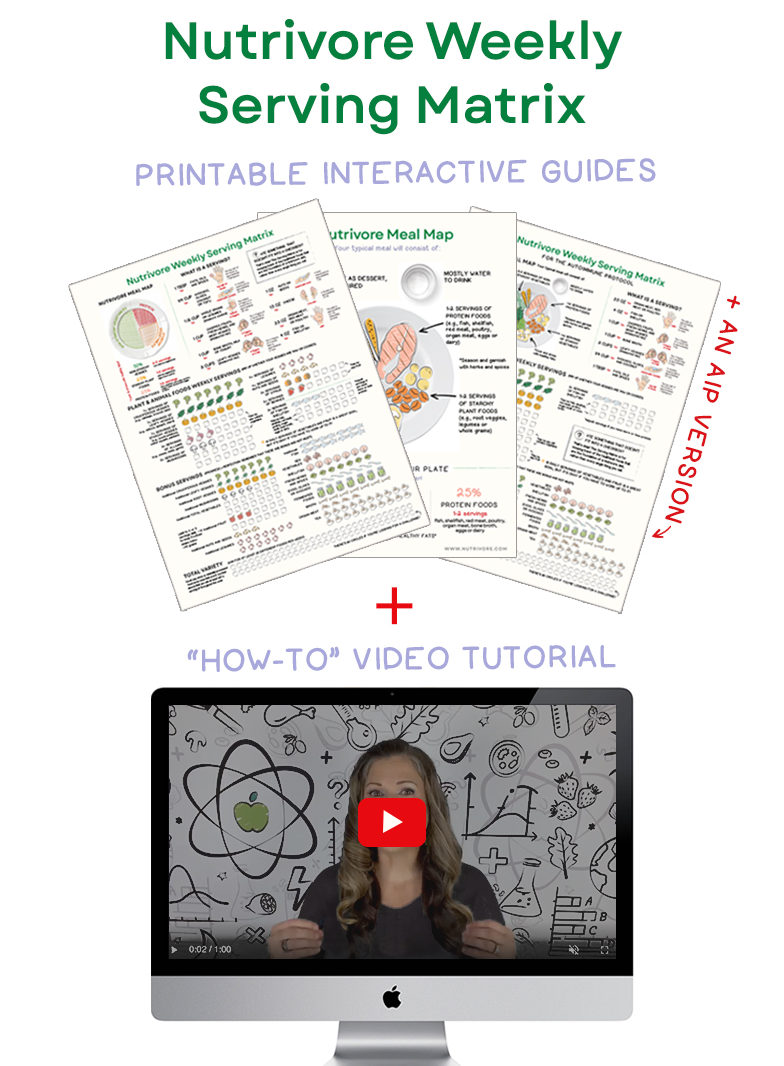
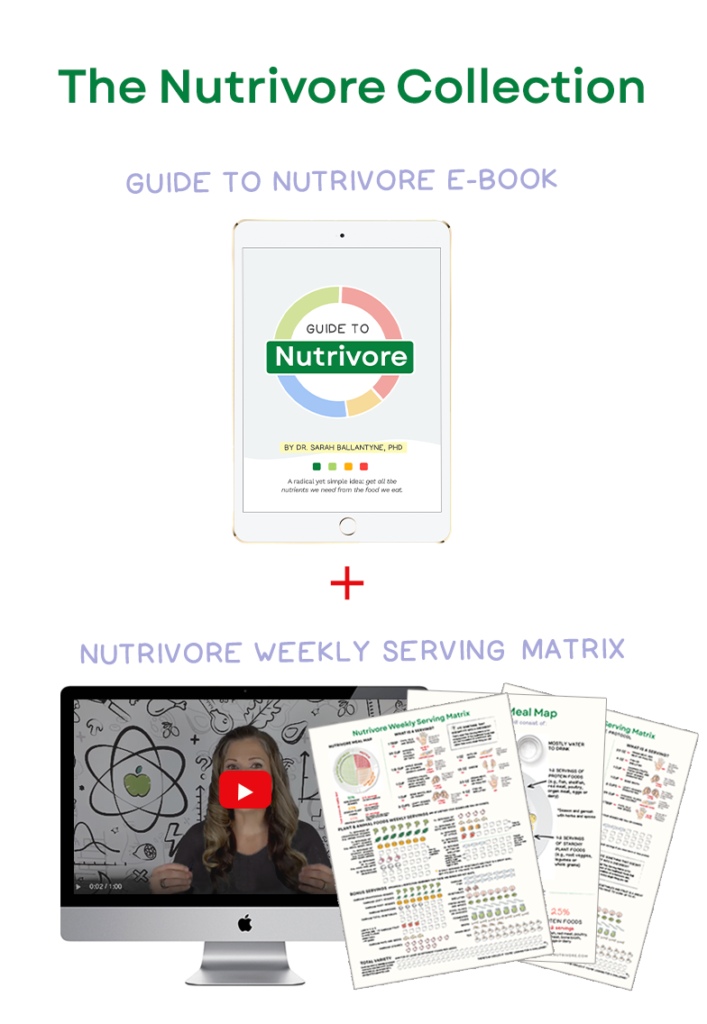
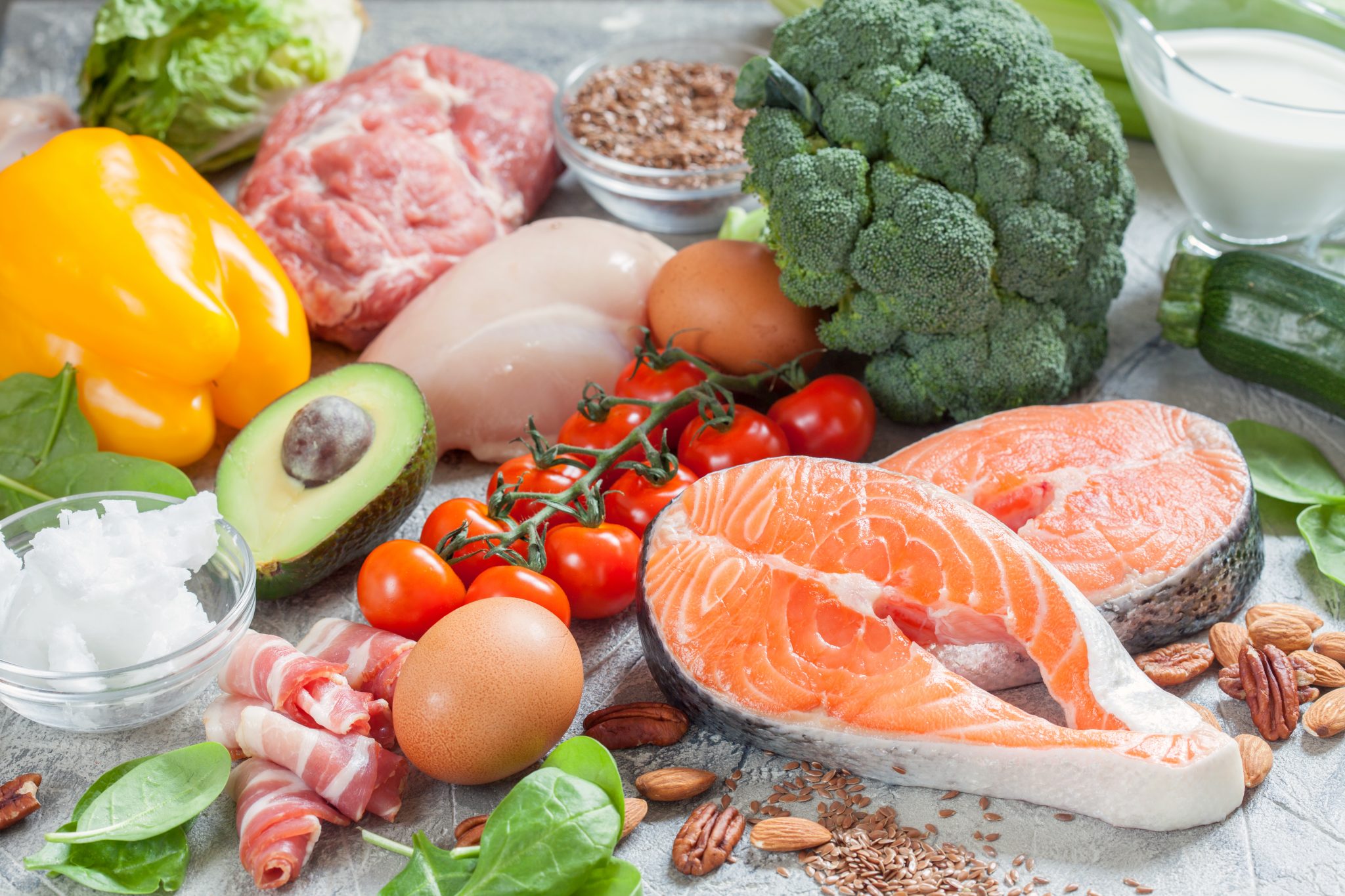
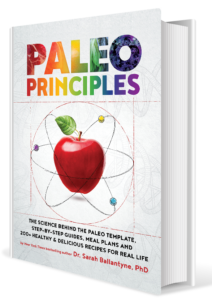
 TPV Podcast, Episode 282: Foods for Rheumatoid Arthritis and Joint Health
TPV Podcast, Episode 282: Foods for Rheumatoid Arthritis and Joint Health